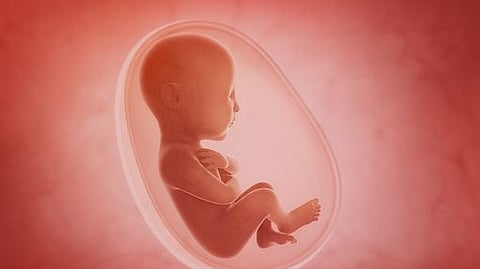

Vaccination against COVID-19 had no impact on the health of placentas in pregnant women, according to new research by pathologists at Weill Cornell Medicine and NewYork-Presbyterian. The findings, published June 27 as a research letter in the American Journal of Obstetrics & Gynecology, further emphasize the safety of vaccination during pregnancy for babies and pregnant women, the investigators note.
Most previous studies on the impact of COVID-19 vaccination during pregnancy have focused on maternal and infant outcomes. By contrast, for this study, the investigators examined 18 indicators of placental health, such as the presence of lesions, blood clots and inflammation associated with a higher risk of adverse health issues for babies and their mothers. They also collected data from clinical records on the babies’ birth weights and the score that assesses babies’ well-being at one minute and five minutes after birth, called the Apgar score.
The researchers analyzed findings for 431 women who gave birth to single babies at NewYork-Presbyterian/Weill Cornell Medical Center between April 2020 and July 2021 and compared results for 164 women who were fully vaccinated during pregnancy, defined as having received at least two doses of an mRNA COVID-19 vaccine (Pfizer or Moderna), with 267 unvaccinated women. All women included in the study had no evidence of current or prior SARS-CoV-2 infection.
The investigators found no significant differences in placental health indicators, birth weights or Apgar scores between vaccinated and unvaccinated women.
As expected from previous research, 95 percent of babies born to vaccinated mothers had detectable antibodies against SARS-CoV-2 in umbilical cord blood. Other studies have shown that vaccinating mothers during pregnancy not only protects them from severe illness from COVID-19, but also helps protect their babies for several months after birth.
Overall, the findings add to the existing body of knowledge demonstrating that COVID-19 vaccines are safe during pregnancy, the authors concluded. (SP/Newswise)
